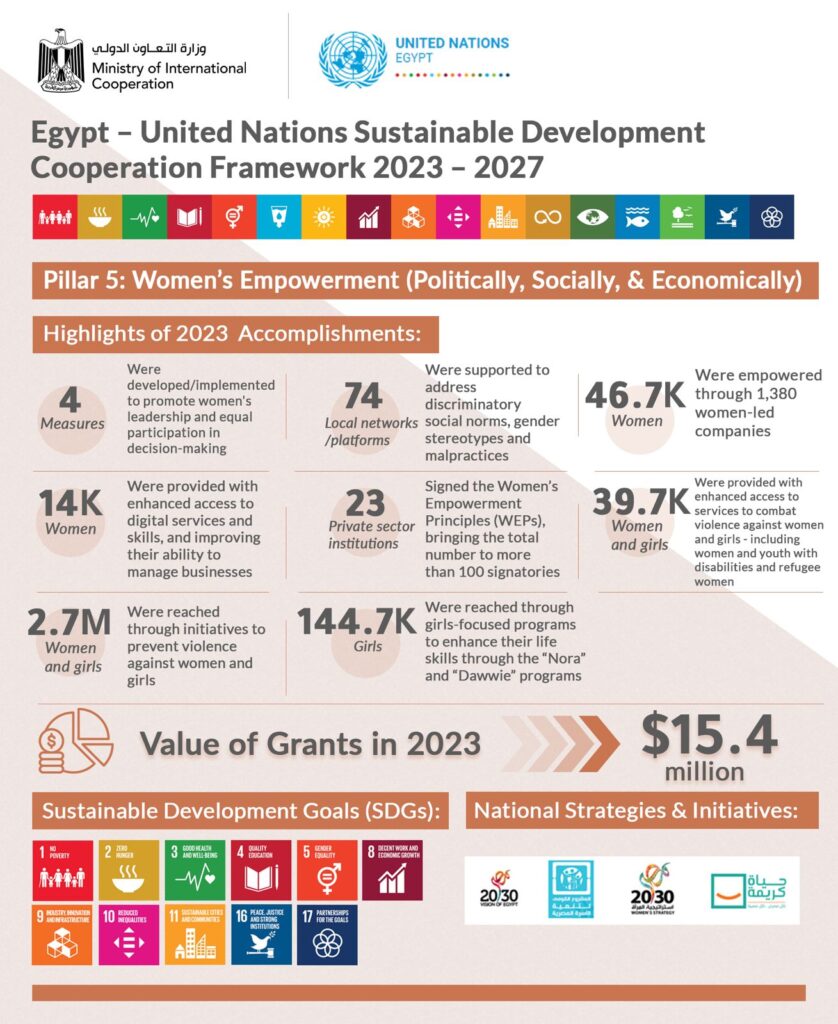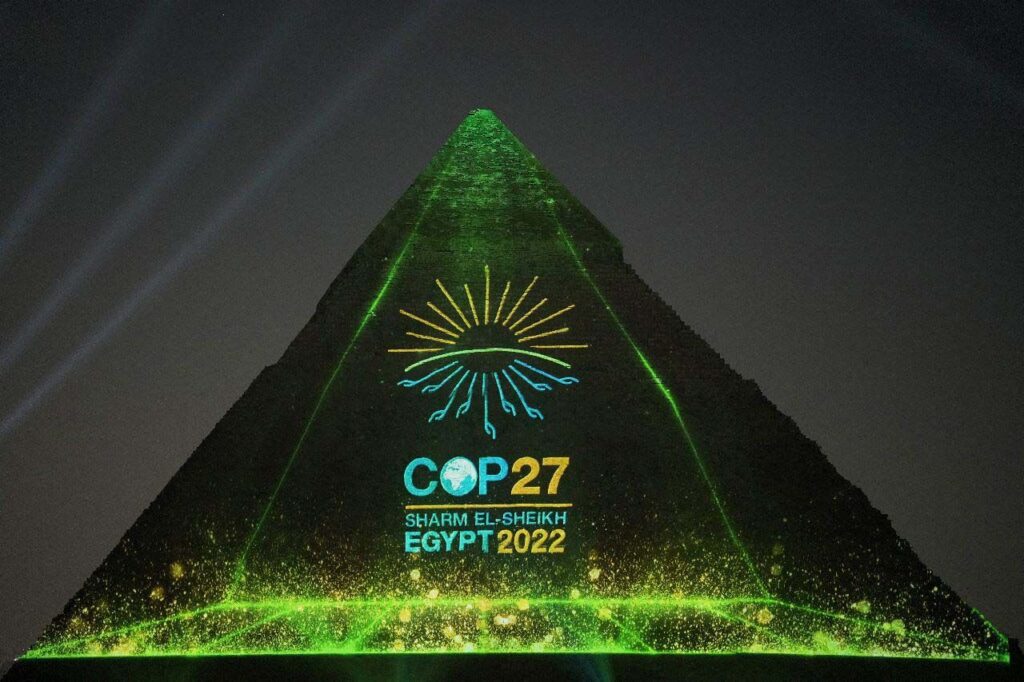Development grants totaling $178 million were utilized across five pillars during the inaugural Joint Steering Committee Meeting co-chaired by the Ministry of International Cooperation and the United Nations Resident Coordinator in Egypt, according to a joint statement released in March.
Significant progress in implementing the Egypt-United Nations Sustainable Development Cooperation Framework 2023-2027 was highlighted in the statement, focusing on fostering human capital, sustainable economic development, climate resilience, governance, and women’s empowerment.
Rania Al-Mashat, Minister of International Cooperation, highlighted the importance of multilateral cooperation demonstrated by the partnership between Egypt and the UN.
She also emphasized that development grants from bilateral development partners facilitated the programs and interventions within the framework. Al-Mashat added that collaboration between national entities and international agencies played a crucial role in aligning development efforts with national strategies and initiatives.
These are the key highlights in 2023, according to the statement.
Fostering Human Capital: Collaboration with entities like UNICEF, WHO, and UNFPA resulted in significant benefits, including healthcare services for over 3.6 million individuals and training for 310,000 people. Efforts against child labor and trafficking impacted 7,000 individuals, with grants of approximately $97.3 million allocated.
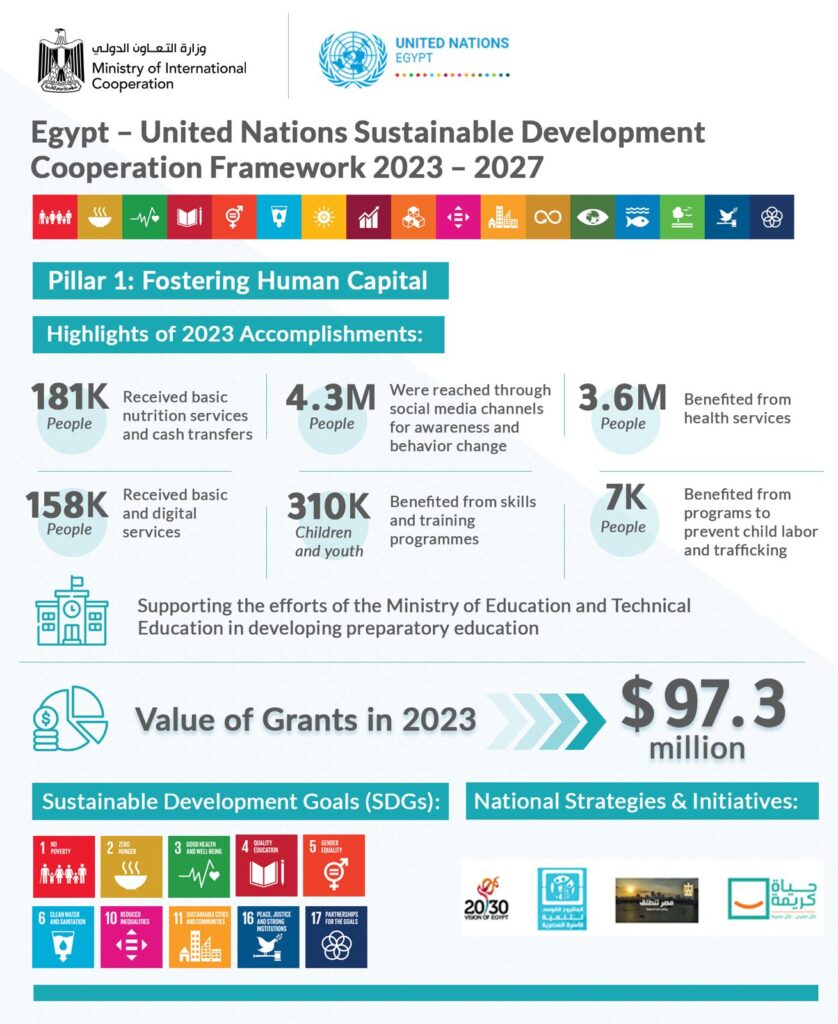
Sustainable and Inclusive Economic Development: Technical support aided around 50,500 MSMEs, benefiting 282,900 individuals through entrepreneurship and skills training. Integration into value chains and access to new markets were facilitated for 207,530 MSMEs, supported by $12.9 million in grants.
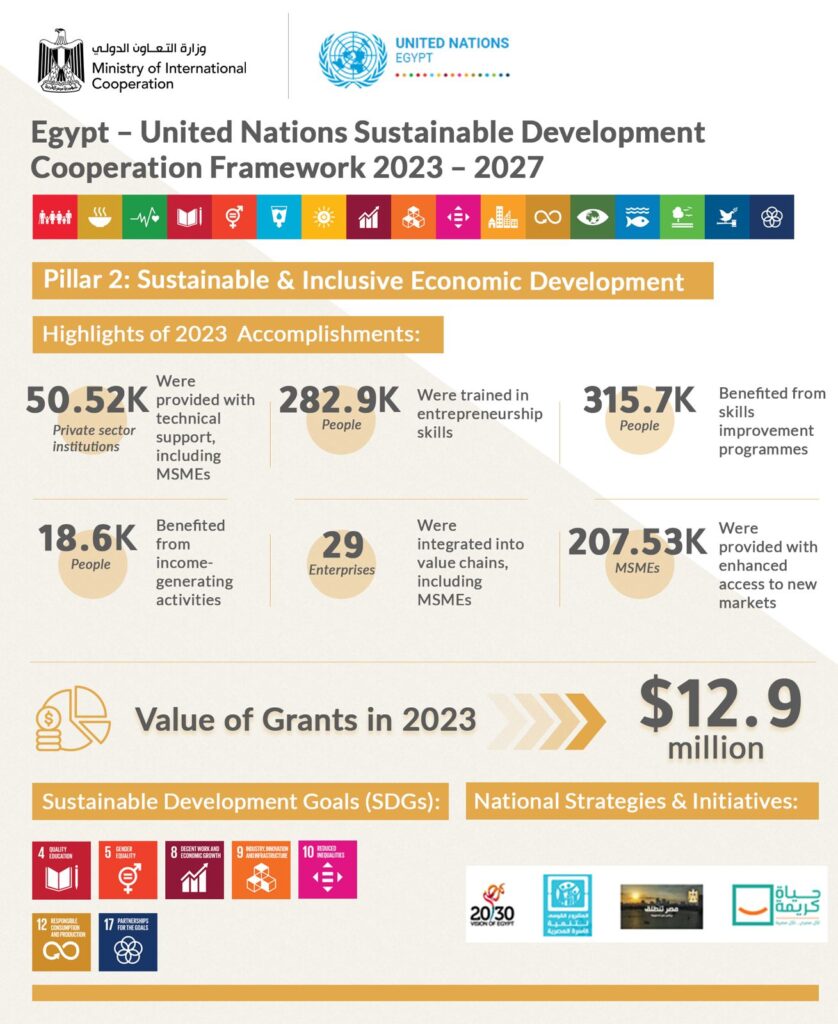
Enhanced Climate Resilience and Resource Management Efficiency: Joint efforts with ministries and organizations like UNIDO and FAO led to achievements in nature conservation, disaster risk reduction, and sustainable resource utilization. Projects received grants totaling $23.8 million.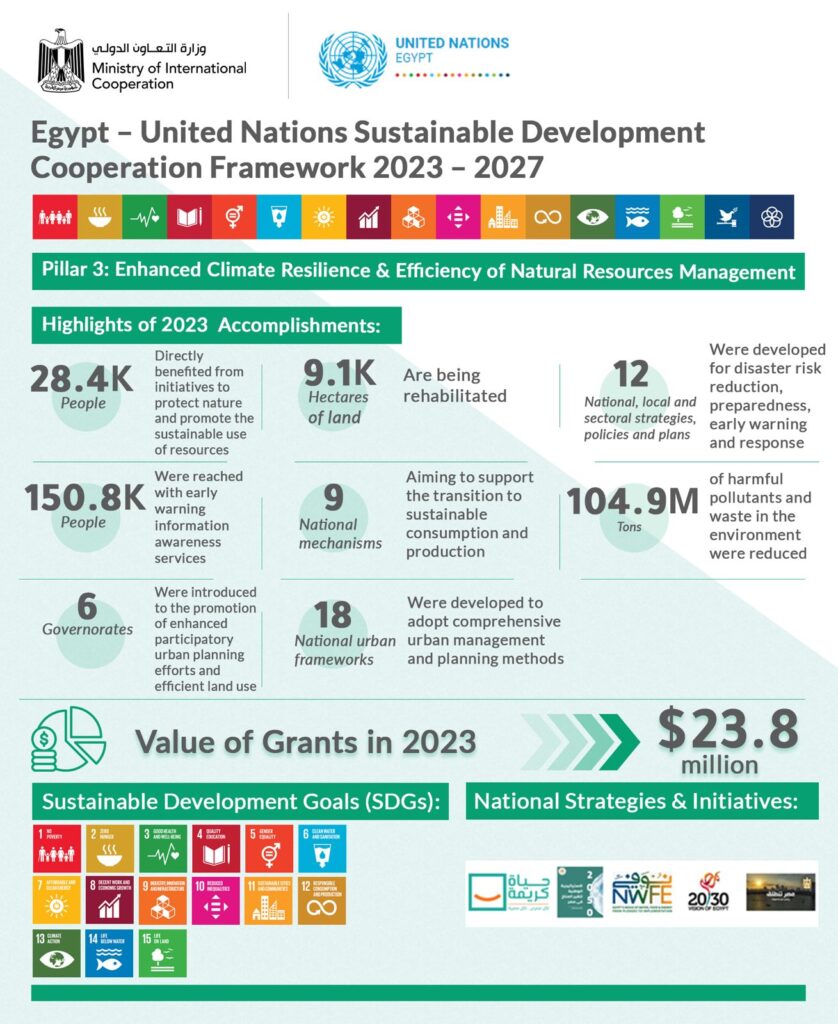
Transparency, Accountability, and Efficient Governance: Collaborative measures strengthened public administration and improved data collection for SDG monitoring. Notably, 318,500 individuals obtained legal identities, and initiatives for South-South cooperation were implemented, supported by grants of approximately $28.6 million.
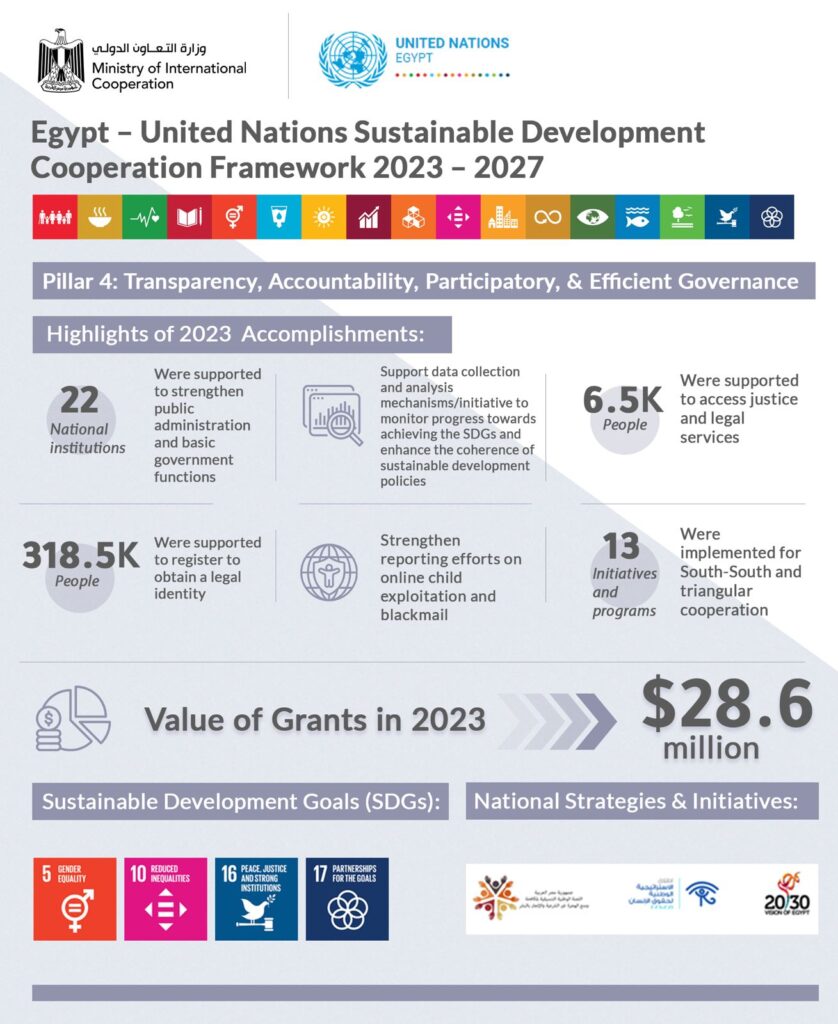
Women’s Empowerment: Programs received $15.4 million in grants, focusing on leadership, decision-making equality, and combating discriminatory norms. Support for local networks and platforms benefited numerous women and girls, including initiatives for entrepreneurship and digital skills, as well as efforts to combat violence. Over 23 private sector institutions pledged commitment to Women’s Empowerment Principles, positively impacting thousands of women and girls in Egypt.
